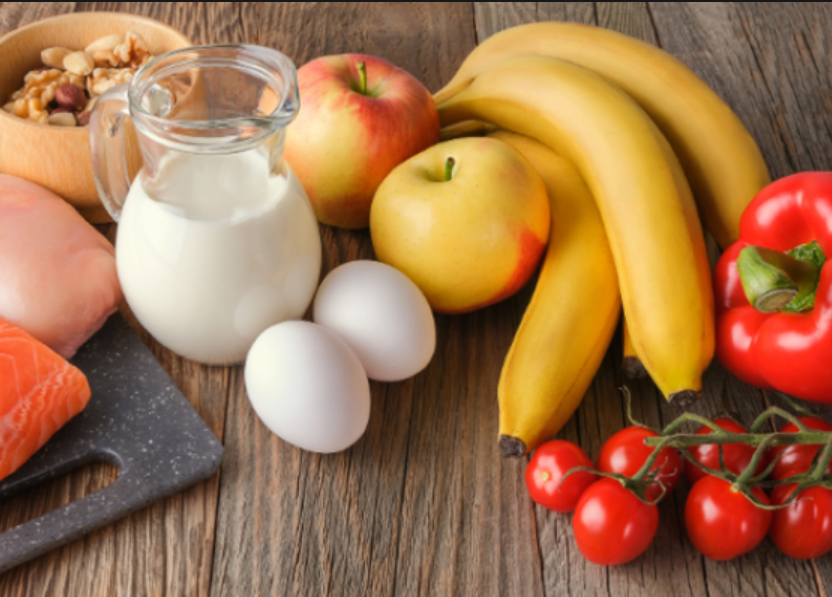Introduction
Nutrient density is a term that has gained prominence in the world of nutrition and healthy eating. It refers to the concentration of essential nutrients per calorie in a given food. In other words, foods that are nutrient-dense provide a high amount of vital nutrients while being relatively low in calories. This article delves into the concept of nutrient density, explores its significance for overall health, and reveals some of the healthiest foods that can help you achieve vibrant living.
Heading 1: Understanding Nutrient Density
Nutrient density is a key concept in the realm of nutrition. It’s a measure of how much nourishment a food offers compared to its calorie content. Essentially, nutrient-dense foods are packed with essential vitamins, minerals, fiber, and other beneficial compounds without being calorically dense. In contrast, low-nutrient foods tend to be high in calories and offer little in terms of essential nutrients.
Heading 2: The Significance of Nutrient Density for Health
The nutrient density of your diet plays a crucial role in your overall health and well-being. Consuming foods that are rich in essential nutrients provides several advantages:
a. Weight Management:
Nutrient-dense foods can help with weight management because they provide satiety and essential nutrients without contributing excess calories. This makes them a valuable component of a balanced diet.
b. Vitality and Energy:
Nutrient-dense foods fuel your body with the necessary vitamins and minerals to maintain energy levels, support metabolic functions, and enhance overall vitality.
c. Disease Prevention:
A diet rich in nutrient-dense foods has been associated with a reduced risk of chronic diseases such as heart disease, diabetes, and certain types of cancer.
d. Nutrient Absorption:
When your diet includes nutrient-dense foods, your body can absorb these vital nutrients more effectively, optimizing their health benefits.
Heading 3: The Healthiest Nutrient-Dense Foods
Let’s explore some of the healthiest nutrient-dense foods that can enhance your well-being and support vibrant living:
a. Leafy Greens:
Vegetables like kale, spinach, and Swiss chard are packed with vitamins, minerals, and fiber while being low in calories. They are known for their antioxidant and anti-inflammatory properties.
b. Berries:
Blueberries, strawberries, and blackberries are rich in antioxidants, fiber, and vitamins. They have been linked to improved cognitive function and reduced oxidative stress.
c. Fatty Fish:
Salmon, mackerel, and sardines are excellent sources of omega-3 fatty acids, which support heart health and brain function. They also provide high-quality protein.
d. Nuts and Seeds:
Almonds, walnuts, and chia seeds are nutrient-dense options that offer healthy fats, protein, fiber, and an array of vitamins and minerals.
e. Whole Grains:
Quinoa, brown rice, and oats are whole grains that provide essential nutrients and fiber. They are particularly valuable for sustained energy and digestive health.
f. Legumes:
Beans, lentils, and chickpeas are nutrient-dense sources of plant-based protein, fiber, and vitamins. They support heart health and digestive well-being.
g. Avocado:
Avocado is a unique fruit that is rich in healthy fats, particularly monounsaturated fats. It also contains fiber, vitamins, and minerals.
h. Eggs:
Eggs are an excellent source of complete protein and essential nutrients like vitamin B12 and choline. They support various bodily functions.
i. Greek Yogurt:
Greek yogurt is a nutrient-dense dairy option that provides protein, probiotics, and essential vitamins and minerals.
Heading 4: Practical Tips for Increasing Nutrient Density
Incorporating nutrient-dense foods into your diet is a practical approach to improving your overall health. Here are some tips to get you started:
a. Prioritize Whole Foods:
Opt for whole, unprocessed foods, which are typically more nutrient-dense than their processed counterparts.
b. Eat a Rainbow:
Consume a variety of colorful fruits and vegetables to ensure you benefit from a wide range of nutrients and antioxidants.
c. Balance Macronutrients:
A balanced diet includes a mix of carbohydrates, proteins, and healthy fats. This variety ensures you receive essential nutrients from various sources.
d. Read Labels:
When purchasing packaged foods, read nutrition labels to identify products that are higher in nutrients and lower in empty calories.
e. Plan Balanced Meals:
Create well-rounded meals that include a source of protein, plenty of vegetables, and a small portion of whole grains or healthy fats.
Conclusion
Nutrient density is a fundamental concept in nutrition that can significantly impact your overall health and well-being. By incorporating nutrient-dense foods into your diet, you can enjoy increased energy, manage your weight effectively, and reduce your risk of chronic diseases. These foods not only provide essential nutrients but also taste delicious, making them an excellent choice for those seeking vibrant living through their dietary choices. Embrace the nutrient-dense foods mentioned in this article and make them a part of your daily routine to experience the many benefits they have to offer.

